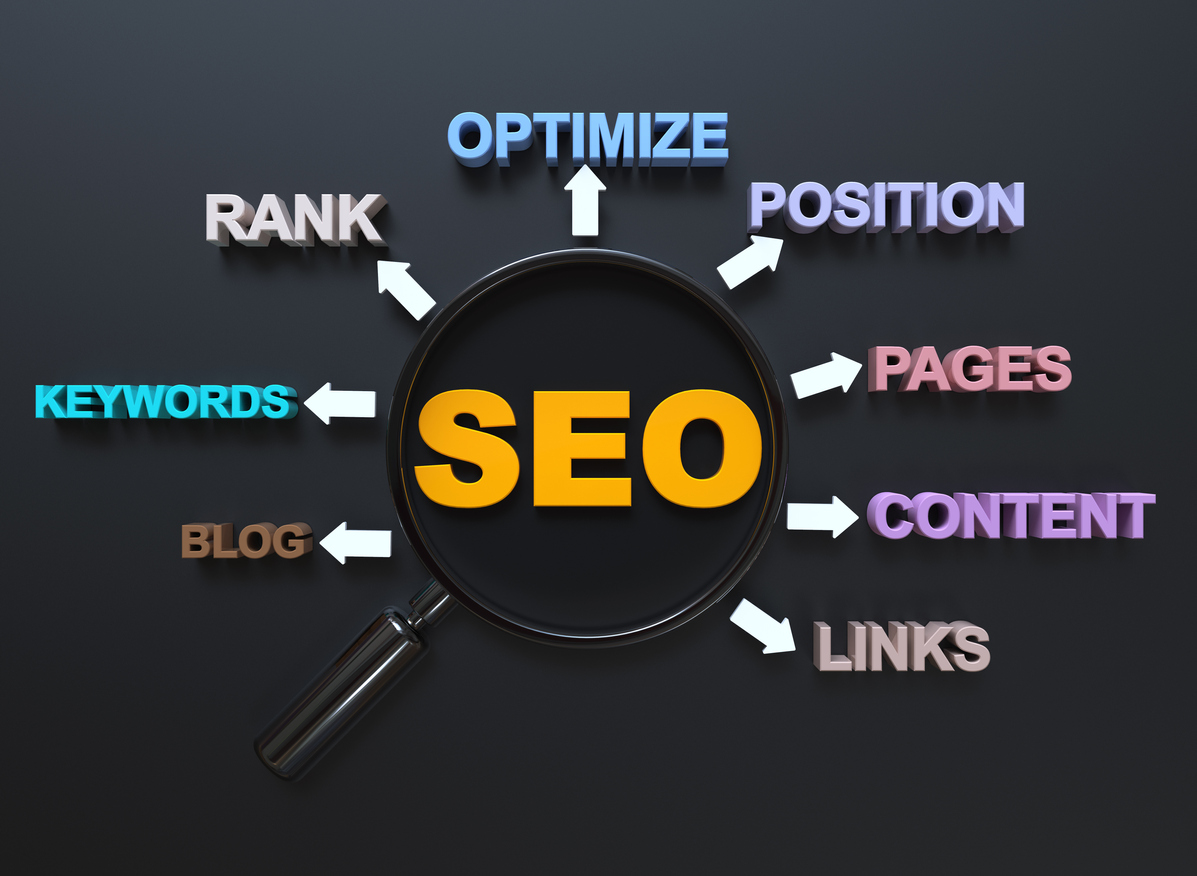This blog post will provide you with the basic on-page SEO tactics for increasing your website’s exposure and attracting organic visitors. Whether you’re an experienced marketer or just getting started, optimising your on-page elements is critical for dominating search engine results pages (SERPs).
I. Why On-Page SEO Matters
- Begin with a compelling statistic demonstrating the significance of search engines in increasing web traffic.
- Briefly describe Search Engine Optimisation (on-page SEO) and its importance in digital marketing success.
- Emphasise the significance of on-page SEO as the foundation of a successful SEO strategy.
II. Keyword Optimization
- Define keywords and their value in search rankings.
- Explain how to do keyword research to find relevant keywords with high search traffic but low competition.
- Discuss the strategic positioning of keywords in:
- Title tags are captions that show at the top of search results and browser tabs.
- Meta descriptions are brief summaries that appear below titles in search results.
- Headers (H1, H2, etc.) are headings that help structure your material and increase readability.
III. Content is King
- Emphasise the importance of high-quality content that engages readers and adds value.
- Discuss how to create useful, well-written, and SEO-friendly material.
- Use headers and subheadings to organise and improve user experience.
- Bullet points help to increase reading and highlight essential topics.
- Internal linking entails connecting relevant pages on your website to increase user engagement and SEO value.
IV. Image Optimization
- Explain how optimising picture alt text with relevant keywords improves accessibility and search engine understanding.
- Briefly cover file name optimisation (using descriptive keywords rather than general names) and image compression strategies to improve download times.
V. URL Structure
- Explain the importance of SEO-friendly URLs that are clear, concise, and descriptive.
- Discuss recommended practices for URL building, such as using relevant keywords and avoiding too many parameters.
VI. Meta Tags
- Define meta titles and descriptions and their importance in search results displays.
- Provide suggestions for creating appealing meta tags that are:
- Optimised for relevant keywords.
- Descriptive and informative, promoting clicks.
- Within the character limits specified by search engines.
VII. Mobile Optimization
- Highlight the growing relevance of mobile responsiveness in today’s mobile-first environment.
- Briefly explore how to ensure your website works effectively across multiple platforms, such as smartphones and tablets.
VIII. Conclusion
- Recap the main on-page SEO tactics discussed in this blog post.
- Briefly mention the benefits of implementing these strategies: improved search ranking, increased website traffic, and ultimately, achieving your business goals.
Addressing Your SEO Needs in Bangalore
While mastering on-page SEO is powerful, managing the complexities of digital marketing can be difficult. If you’re looking for professional help to improve your website’s rating and online presence, Bangalore has a growing SEO services market. Here are some resources to connect with the best SEO agencies in Bangalore:
- Search phrases such as “SEO companies in Bangalore,” “Top SEO companies in Bangalore,” “Best SEO company in Bangalore,” or “SEO agency in Bangalore” will lead you to a variety of SEO service providers.
- Clutch.co offers verified ratings and project details for SEO companies, allowing you to evaluate and select the best fit for your requirements.
Remember that an effective SEO strategy is a continuous effort. By applying these on-page SEO strategies and maybe working with a qualified SEO agency in Bangalore, you can rocket your website to the top of search results and achieve long-term digital success.
On-Page SEO Questions
While this blueprint provides you with the essential on-page SEO methods, readers may have additional questions. Let’s look at some regularly asked questions and include the solutions into your blog post:
How frequently should I update my website’s content for SEO?
Search engines prefer websites with new, interesting material. Aim to update old content on a regular basis and consistently publish new content. The appropriate frequency is determined by your topic and content strategy, but a reasonable starting point for existing websites is once a month, with more frequent updates for new ones.
Should I target short- or long-tail keywords?
Both short-tail (wide keywords with high search traffic) and long-tail keywords (more specific keywords with lower search volume) are useful. Short-tail keywords can be extremely competitive, whereas long-tail keywords have a better chance of ranking and frequently imply stronger user intent (which means visitors are more likely to make a purchase).
How long should my website’s content be for SEO?
There is no one-size-fits-all solution. Content length should be dictated by the topic and user intent. In general, search engines prefer content that fully addresses the user’s query. Aim for in-depth, valuable information, but don’t sacrifice quality for length.
How can I determine the success of my on-page SEO efforts?
There are numerous tools and KPIs for tracking your SEO development. Google Search Console delivers useful information on your website’s search rankings, keyword performance, and user engagement. Furthermore, technologies such as Google Analytics enable you to track website traffic, user behaviour, and conversions resulting from organic search.


